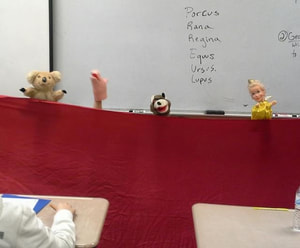- Salvete Omnes!
- About Me
-
The Stuff is Here
- Beginning Activities
- Card and Board Games
- Kinetic Activities: Get 'em out of their seats
- Mad-libs for All Levels
- Miscellaneous Low or No prep Activities
- Movie Talks!
- Stories Not in Your Textbook
- Stuff for Advanced Students
- Teaching Case
- This I Believe
- White board Activities: Winning.
- Writing in Latin with Students
- Mythology RPG
- Songs
- Quid Novi?
- Links!
- TRES FABULAE HORRIFICAE
- LEO MOLOSSUS
- OVIDIUS MUS


 RSS Feed
RSS Feed
